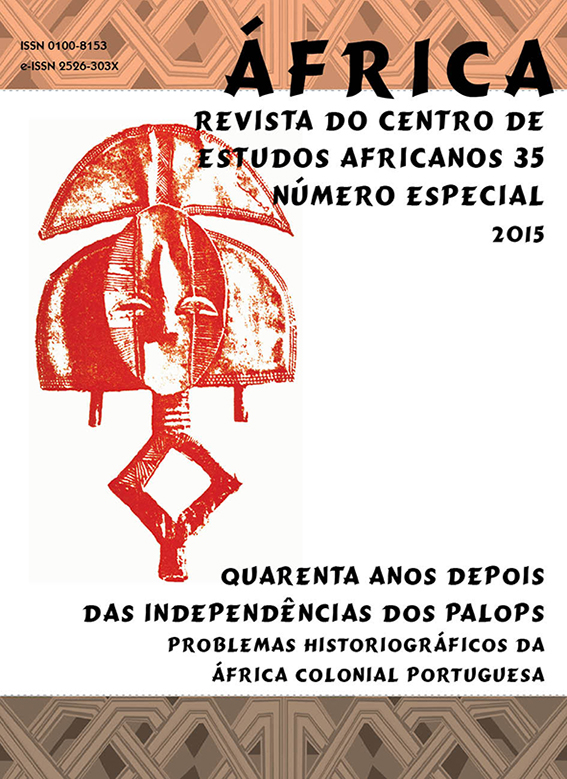Maria do Huambo: a life as a “native”. Colonization, legal status and racial discrimination in Angola (1926-1961)
DOI:
https://doi.org/10.11606/issn.2526-303X.v0i35p119-127Keywords:
Angola. Colonialism. Race. Legal pluralism. Native StatuteAbstract
Legal dualism characterized colonial rule in all European empires in Africa in the twentieth century, despite some conceptual and practical differences among them. In the case of Angola, Mozambique and Guinea (the Portuguese colonies where a legal “Native Statute” was imposed from 1926 to 1961) that was an essential part of the colonial doctrine, with deep economic, political, and social implications. Using the example of Maria, a fictional character based on research exploring a wide range of sources, this text highlights what living under such a “Statute” meant for people’s everyday lives. It also reveals how much it was, in fact, a legal barrier to the social mobility of the majority of the colonized population, even when economic and cultural changes opened the way for such advancesDownloads
Download data is not yet available.
Downloads
Published
2015-02-16
Issue
Section
Artigos
License
A reprodução de qualquer dado, mesmo em resumo, de matéria contida nesta publicação, só será permitida com a citação do nome, número e o ano desta revista.How to Cite
Maria do Huambo: a life as a “native”. Colonization, legal status and racial discrimination in Angola (1926-1961). África, [S. l.], n. 35, p. 119–127, 2015. DOI: 10.11606/issn.2526-303X.v0i35p119-127. Disponível em: https://www.journals.usp.br/africa/article/view/126696.. Acesso em: 20 may. 2024.





